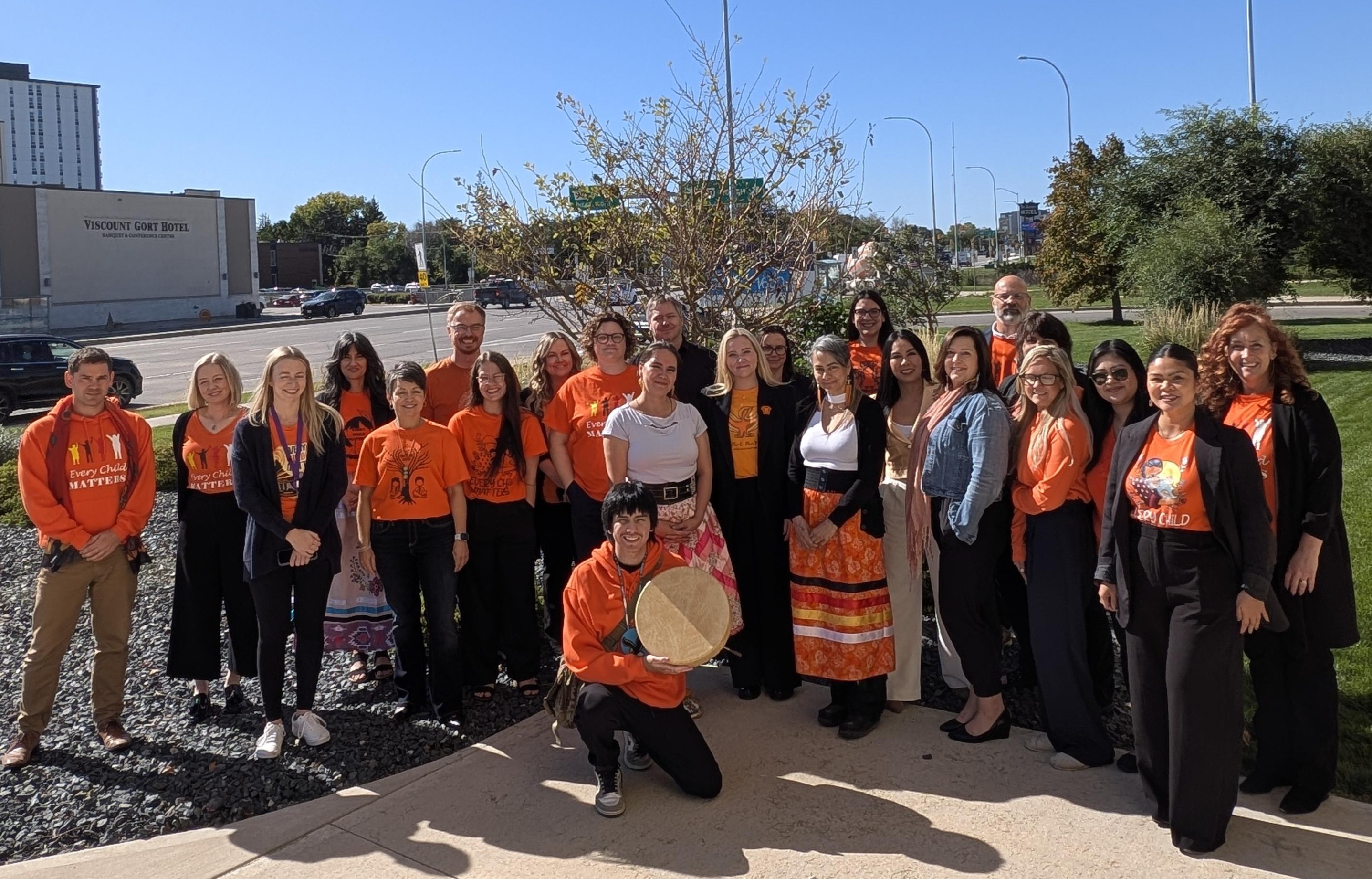Making space for individual learning this National Day for Truth and Reconciliation

As an organization where Truth and Reconciliation is a priority, we recognize that true reconciliation starts with each one of us as individuals.
Making time for reflection, learning, and conversation to remember and honour the tragic history and ongoing impacts of residential schools is an important part of CPSM's reconciliation path.
For the past several years, CPSM staff have had the privilege of learning from Indigenous physicians, Elders, and storytellers. This year, we were honoured to hear from Tara Myran and her son, Drayton.
Tara shared her personal story and journey and reminded us of the importance of the Truth & Reconciliation Commission's Final Report and Calls to Action, 10 years after their release.
Drayton performed a drum song and shared the 7 Sacred Teachings.
We remain committed to meaningful action as we continue on our path toward reconciliation.
Click to read more about our commitment and journey
What can you do as a registrant?
1. Commit to completing Cultural safety and anti-Indigenous racism education
This National Day for Truth and Reconciliation, we remind you of the new training requirement.
The mandatory cultural safety and anti-Indigenous racism training responds to the Truth and Reconciliation Commission’s Call to Action #23, which calls for cultural competency training for all healthcare professionals.
The training must be completed by October 31, 2027.
Reminder: the costs of your training are eligible for a CPD expense rebate through Doctors Manitoba.
2. Attend a community event
The Southern Chiefs’ Organization has compiled a list of activities taking place leading up to and taking place for Orange Shirt Day on September 30, including the 5th Annual Orange Shirt Day Healing Walk and Pow Wow.
The event starts with a pipe ceremony at the Oodena Circle at The Forks at 10 a.m., followed by the healing walk at 11 am to the RBC Convention Centre in Winnipeg.
Click to see the event listing
3. Learn more about the Restorative Practice Program
Answering the TRC Call to Action #22, the Truth and Reconciliation Commission
CPSM has also established the Restorative Practices Program (RPP), as part of the new Standard of Practice – Practicing Medicine to Eliminate Anti-Indigenous Racism.
This program responds to the Truth and Reconciliation Commission of Canada's Call to Action #22, as we center our approach on Indigenous practices and teachings
The RPP applies the principles of restorative practices to uphold the Standard of Practice and commitment to action by engaging in meaningful, educational, and supportive conversations with registrants, members of the public, communities, families, and health care professionals to repair harm, restore trust, rebuild relationships, and prevent further harm through accountability, guidance, and healing.
The program falls under the Quality department because its focus is on being helpful, educational, and supportive for registrants.